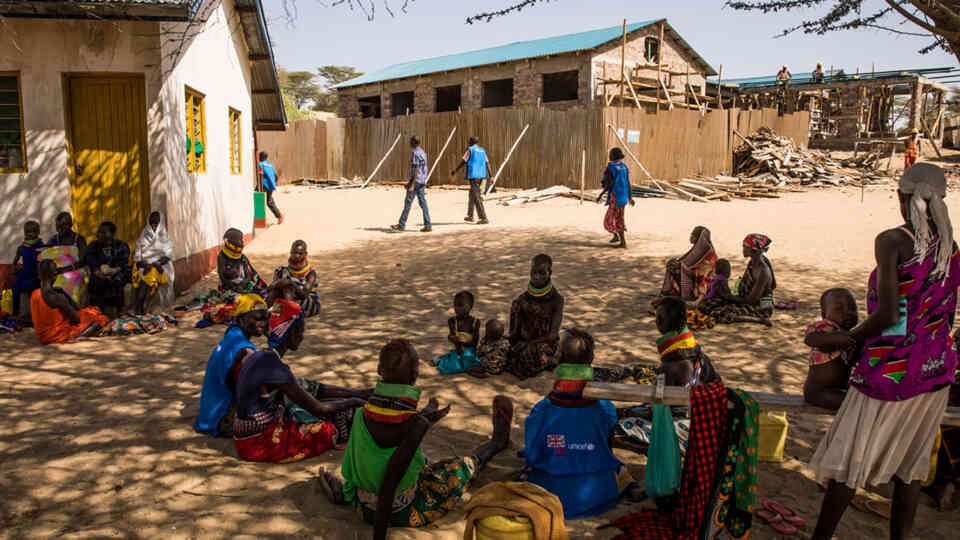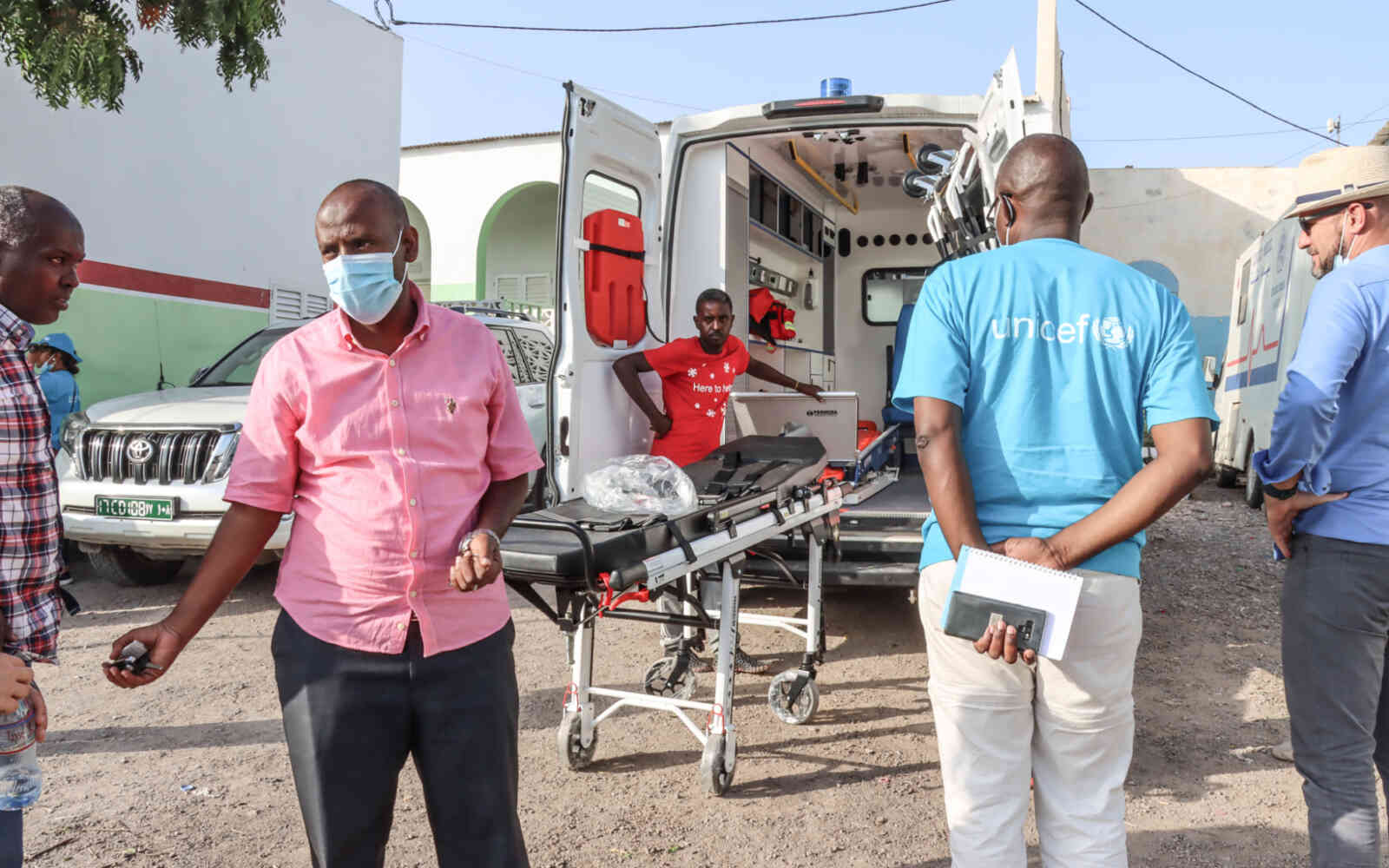The United Nations Office for Project Services (UNOPS)

A ray of hope for flood-affected families
In western Kenya, a cash transfer programme is helping a devastated community rebuild.
- Photos: © World Food Programme/Martin Karimi
Gabriel Ndong’a props himself against a wooden post, walking stick in hand. To his left, a blue wooden door with faded paint is ajar, opening into a house whose mud walls have since been washed away – leaving naked pillars to support an iron sheet roof that threatens to cave in at any moment.
Gabriel lives in Kadibo, an area in Kisumu County in western Kenya plagued by yearly flooding.
Flooding in Kisumu County usually happens when the Nyando River breaks its banks during the rainy seasons. But in recent years, increasing backflow water from the lake has permanently settled on the rich farmland – destroying infrastructure and completely wiping out livelihoods for thousands of families.
Kadibo has been Gabriel's home for the past 30 years. The ground he sits on is still moist. Ill and weak, he gazes thoughtfully at what was once his thriving farm but is now an overgrown marshland. At the edge of the crumbling house, three young boys try their luck catching mudfish with homemade lines and hooks. The water has been here long enough for fish to spawn and make a home.


“This is my ancestral land. I used to farm and rear cows here, but for the last six years, the land has been under water – the crops were destroyed and my animals are dead,” says Gabriel. “I’m retired and I don’t have money to buy land elsewhere. I cannot relocate.”
Destroyed houses sit scattered across the landscape. Empty schools and hospitals stand submerged in water. What was once liveable and productive land now lies in ruins.
Across the county, an estimated 8,000 families impacted by the floods are currently living in temporary shelters, with most having little prospect of ever returning home.
White tents, provided by various aid organizations, reflect the harsh midday rays. Gabriel and his wife live in one of these tents in Ogenya Israel – 1 of 24 tented villages for displaced people spread across Kisumu County. He relies on assistance provided by aid agencies to meet his basic needs.
As part of the response efforts, the World Food Programme together with the United Nations Central Emergency Response Fund and UNOPS worked with the County Government of Kisumu to provide nearly 3,000 flood-affected households with cash transfers totalling 5,000 shillings (almost $40) a month for two months.
Linet Atieno sits in her new makeshift home, partly made of iron sheets donated by the local government. Outside, about two kilos of maize is spread on a tarp to dry. This is what remains of the bag she bought a few weeks ago using money from the cash transfer programme.

“I used to make a living selling mats made of papyrus reeds while my husband farmed and kept animals. The lake has overflown so much such that I cannot reach the reeds – and our cropland is submerged,” says Linet.
Linet’s husband has now taken up fishing. It's taking a toll on his health and bringing in a decent catch is never guaranteed.
For Linet, meals are becoming harder to provide.
“Before the floods, we used to grow food crops such as maize, pumpkin, cassava, sweet potatoes, and had access to milk from the cows,” says Linet. “We used to eat whatever we wanted for breakfast, lunch and dinner. Today, we are lucky if we get two meals. For breakfast, we make strong tea or porridge and ugali with omena (small cheap fish) for dinner.”
The cash transfers are helping families meet immediate food, medical and educational needs – and helping some secure their future livelihoods.
“I bought some maize meal for my family, paid part of my grandchildren’s school fees, and stocked my grocery stall with eggs, kale, tomatoes and cabbage,” says Dorcas Adhiambo. “What I need is capital to boost my business.”


Across the street, Joyce Akinyi is running a small kiosk. For more than 10 years, she grew and sold butternut, maize, tomatoes and vegetables, but floods wrecked the farm and her home four years ago. With no hope of returning to cultivating, she is starting afresh, using the money from the cash transfer programme to stock up.
“After losing everything, I had to find a way to feed and educate my children,” says Joyce. “I hope that one day, this small business will help me rebuild my house.”




















